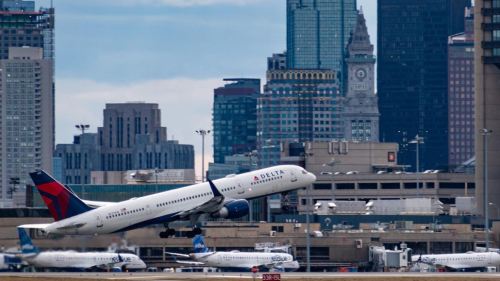Boston is home to several major shoe brands, and this development could be the next big step toward changing Beantown to Sneakertown.
A team of developers, a local nonprofit organization, and a Detroit-based design school are taking major strides to transform our city into a hub for innovation and sneaker design excellence. The proposal would bring the first satellite campus of a historically Black college or university into the Seaport neighborhood.
Lace up your kicks — here’s what we know so far.
Cronin Developments’ plans for the 1.1 million-sqft site near the Boston Convention and Exhibition Center include three office and lab towers. The Boston-based developer teamed up with a local economic empowerment organization called Street2Ivy to shape the vision for the D Street space, which includes an art gallery + classroom space.
The school would offer classes + job training opportunities with a focus on sneaker development and design, which follows the trend for our city as the home base of popular local sneaker brands like Reebok and Converse. Additionally, New Balance, Puma, and Saucony are all based in the Greater Boston area.
The educational programs, in partnership with Pensole Lewis College, will allow the next generation to learn about entrepreneurship and the business of the sneaker industry, according to Tavares Brewington, the founder of Street2Ivy.
The art gallery would shine a light on artists of color and offer new perspectives in Boston’s up-and-coming waterfront neighborhood. Programming for the space will feature an artist in residence + partnerships with local community colleges.
If approved, the team expects a ~two-year development process. While we await the next step, let us know what you think of this project.











